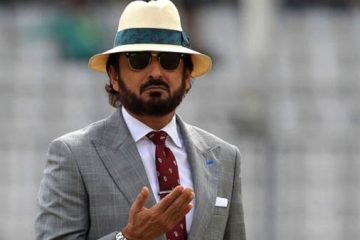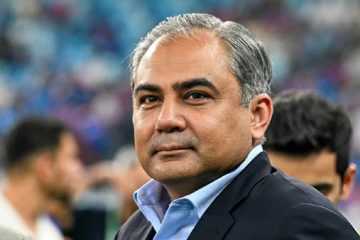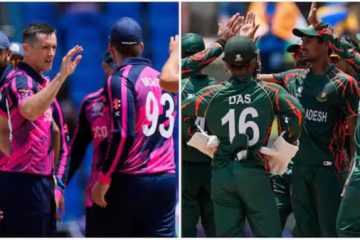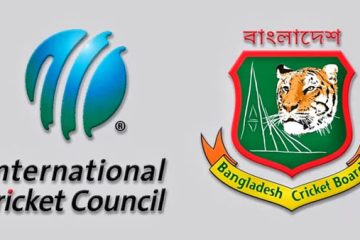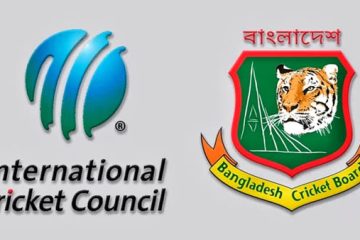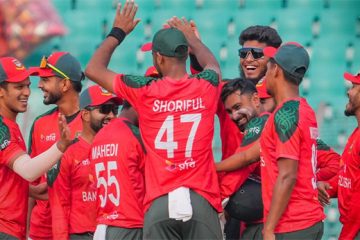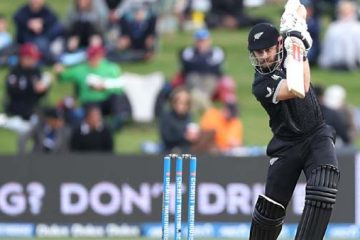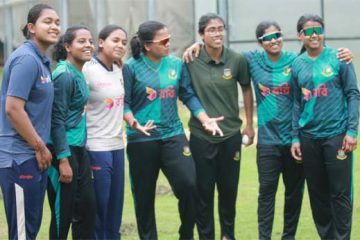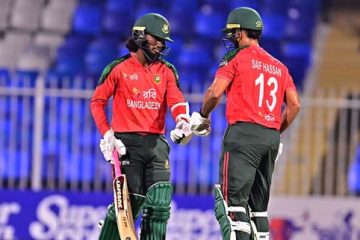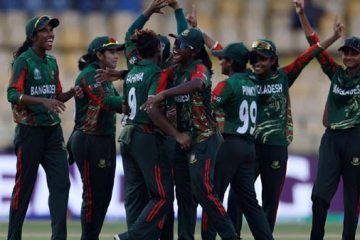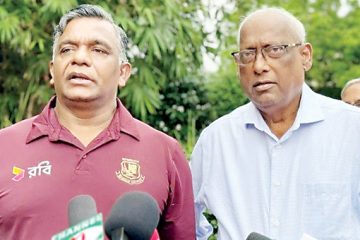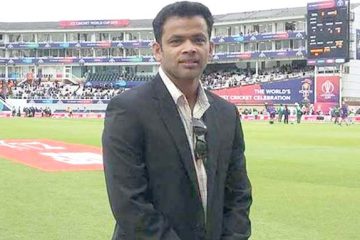Bangladesh Cricket Board president AHM Mustafa Kamal on Saturday welcomed the International Cricket Council’s move to amend the constitution to ensure free elections to its member boards.
The executive board of the ICC will consider two significant changes to its constitution in the two-day meeting beginning in Hong Kong today.
The ICC move came to help the member countries avoid undue government interference in the running of cricket in line with the regulations of other major sporting bodies.
Bangladesh is one of key ICC members, who do not have a completely elected body with its board president being nominated by the government.
‘I welcome the decision of having an elected board president,’ Kamal told reporters on Saturday.
‘It is already agreed that every board president should be elected. ICC does not want the government to take any control in cricket’ said Kamal.
‘We do not have any reason to disagree as the election for the post of president is very important for our country,’ said Kamal.
‘If there is an election for the president’s post whoever gets elected will be able to complete his term irrespective of his political background,’ he said.
‘If there is a political change we see a change in the post of BCB president. It will not happen to an elected president,’ said the lawmaker.
‘This will help him implement his plans as he will be pretty sure of his tenure,’ said Kamal.
The ICC move coincided with a call by former BCB president Saber Hossain Chowdhury, who wanted the government to take an initiative for the election of BCB president.
Currently Bangladesh has elected presidents of only Bangladesh Football Federation and Bangladesh Olympic Association and that too because of the pressure of the FIFA and the International Olympic Council.
According to National
Sports Council Act 1974, Bangladesh’s sports bodies can have both an elected or nominated presidents. But there was no election, apart from the BFF and the BOA, in the 43 sports bodies currently active in Bangladesh.
The ICC move is thought to have come following widespread allegations of government interference in the Pakistan Cricket Board. The ICC last year rejected the nomination of former Australian prime minister John Howard as its next president.
Australia and New Zealand nominated Howard as part of its rotation policy, which is also under scrutiny in the ICC council.
Bangladesh and Pakistan are currently in a position to nominate the next president and vice-president, but the policy is likely to be scrapped in the Hong Kong meeting.
Kamal, who will leave for Hong Kong today, said they will oppose the idea of scrapping the rotational presidency just like Pakistan, but he sounded very little confident. India’s position in this regard apparently left Kamal sceptical about Bangladesh’s success in the meeting.
-With New Age input

